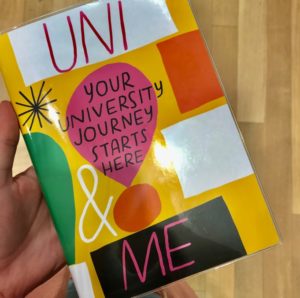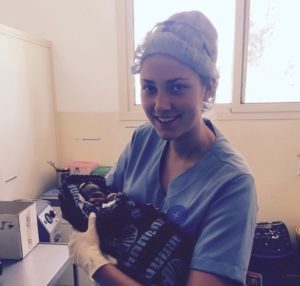So, you’ve sent off your UCAS applications and the wait begins before you  start receiving invitations for interview (if applicable) and offers from the universities you’ve applied to. The decision can seem very daunting to some, or exciting to others as you make the choice about where you’ll be living and studying for the next 3 years or more. It can be made more difficult if some universities have offered you a lower requirement if you firm with them or give you an attainment/unconditional offer.
start receiving invitations for interview (if applicable) and offers from the universities you’ve applied to. The decision can seem very daunting to some, or exciting to others as you make the choice about where you’ll be living and studying for the next 3 years or more. It can be made more difficult if some universities have offered you a lower requirement if you firm with them or give you an attainment/unconditional offer.
I have been through the process of applying to uni twice, so I know how to feels to choose where to apply to, and then who to firm with. Here are my tips for making the decision about where to go…
- Make sure you visit universities before you apply and get a feel for the place
This is very important because online or in prospectus’s a course can seem perfect for what you are looking for but if you’ve never been there then you won’t know if it is the place for you. I visited some universities (after I had sent my application off – oops) and just did not like the vibe of the place. I could not see myself living there and it just didn’t feel right. Other universities I visited, I got a really good feel about. Of course, I am bias towards Birmingham but when I first came to the open day back in Year 12, I just felt it was a really nice place to be as a student. I firmed as soon as my offer for Biomedical sciences came in but this was one of the major reasons why I did.
This is one thing I always say to prospective students when working at open days – how you feel when you are there is important, and you will only know that if you visit! It doesn’t matter if you did not get the chance to go to open days. There is the option to go to applicant visit days and open days later in the year or even visit a friend who is already studying there 🙂

The walk from the Vale to the Medical School along the canal – so pretty and peaceful!
2. What else does that university location offer to you?
This is linked to the last tip, but it is worth spending time whilst visiting the universities to see what else is on offer for you to do. As mentioned, you will be living in the place for at least 3 years, so it needs to be a place that you are going to enjoy. If sports are important to you, can you do this at your university to the standard you want to? Are there things to do outside of the university to do at weekends when friends and family visit? What is the nightlife like? Is there lots of societies that interest you? Do you enjoy city life or a quieter place in a more rural area? What is the cost of living like at said university? What is the transport like?
All of these aspects are important when deciding where to go as your degree programme is only one aspect of university life. It depends on what is important to you. If you are really stuck on where to decide, it might be worth listing all the pros and cons of each place, factoring in the other aspects that are important to you.
3. Speak to students at open days
Some students can feel awkward to ask questions to student ambassadors working at open days and end up either asking a question they could find out on the course leaflets flying around or nothing at all. PICK THESE PEOPLE’S BRAINS! Ask all the things you want to know that the information talks won’t tell you. Ask anything you want! You are paying a lot of money to come to university and to get the best idea of what it is really like being a student is to speak to the ones living it. If they can’t answer your question, they will find someone who can!
4. Does the course you are applying for suit you?
Take the time to actually read what the course you want to do will entail. A degree title is extremely broad and can vary hugely in content between universities. So take the time to sit down and decide which out of the ones you have offers for will truly allow you to flourish during your degree. Is there an option to choose your modules or does the course allow you to study something you are interested in and not others?
Other things to consider surrounding your studies:
- Taking a year out – is this an option for you and is it compulsory?
- Opportunities over the summer – can you do research projects within the university or be supported in applying to go elsewhere in the UK or abroad?
- What does the typical timetable look like for the course?
- What different styles of teaching are on offer?
5. Your firm choice and second choice
With medical and dental courses, sometimes you do not have the option to be so picky about where you firm if you only have one offer. Which is why the first points are important to make sure where you are apply are all places you could see yourself living and studying. But if you’ve received all of your offers and still very unsure, the decision of who to firm with can be a big one. Especially if you have not got your heart set on one place.
A more pragmatic approach, aside from the above, is thinking about whether you are likely to achieve the entry requirements. Something to consider would be to have your second choice be have a slightly lower entry requirement than your firm, especially if you have not been offered a lower entry requirement for firming from any university. It would not make sense to have your second choice asking more than your firm choice. If you find yourself in a situation where you do not achieve the requirements for your firm, then you might not have a place at your second choice either – not ideal to be thinking negatively but you do need to be sensible.
I am sure there are many other factors that come into play about the decision to firm! I hope this broad advice based on my experiences, may be useful in making that decision a little easier for you.
Good luck!
Beth x
